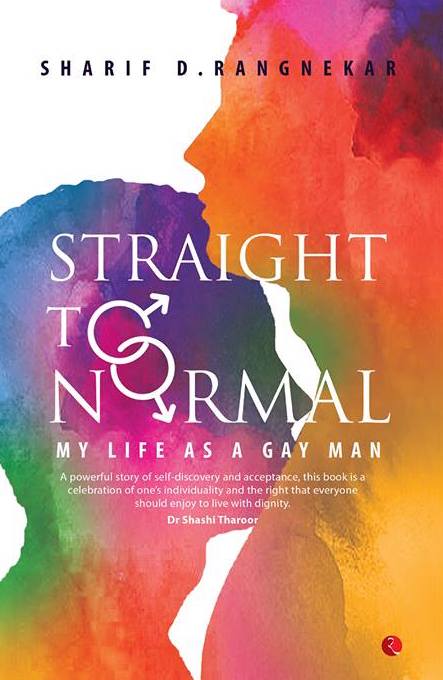To say that this is a “very necessary book” makes it sound rather dull, however, “Straight to Normal” is anything but.
Written in a clear lucid style, that betrays the authors roots as a journalist, it is an immediately accessible book, shining a light on a hitherto closed world of growing up gay in India in the 1980’s and 90’s.
With the decriminalisation of homosexuality in India in 2018, this book is timely as a deeply personal account and also an important social document by one of the activists that helped bring about the reading down of Section 377, a British Victorian Act making homosexuality illegal in India.
The author is immediately likable and writes with searing honesty. Despite him now being 50 this is very much a coming of age novel, both of the author and of India as she trundles into the 21st century. Sharif neatly captures a snap shot of life growing up gay in middle class New Delhi, an insider’s view that has rarely been captured in print. Those who are familiar with the rather clandestine gay scene of Delhi in the 90’s will delight in the references to the clubs and party scene, sprinkled with familiar names.
It is also a very funny book, particularly when Sharif describes the trials and tribulations of being an adolescent, where he is both witty and self-depreciating.
From a social history point of view the book provides a valuable record of the struggle to challenge the law and sensitise both the media and the general population to basic human rights, and as such is a journey of affirmation both for the author and a nation as they come to accept same sex love.
Above all this book will provide a beacon of hope to all gay men growing up in small town India, where being gay is still seen as counter culture in a dominant heteronormative world, and the reality both from family and societal pressure to conform, can be both intimidating and isolating, leading to loneliness and depression.
Allowing us into his life, the author will go an immense way to reassure other gay people that they are neither alone nor have abnormal feelings. I suspect, given the high rate of suicide amongst gay men globally, not just in India, that this book has the power to save someone’s life one day by letting them know that they are not alone.

